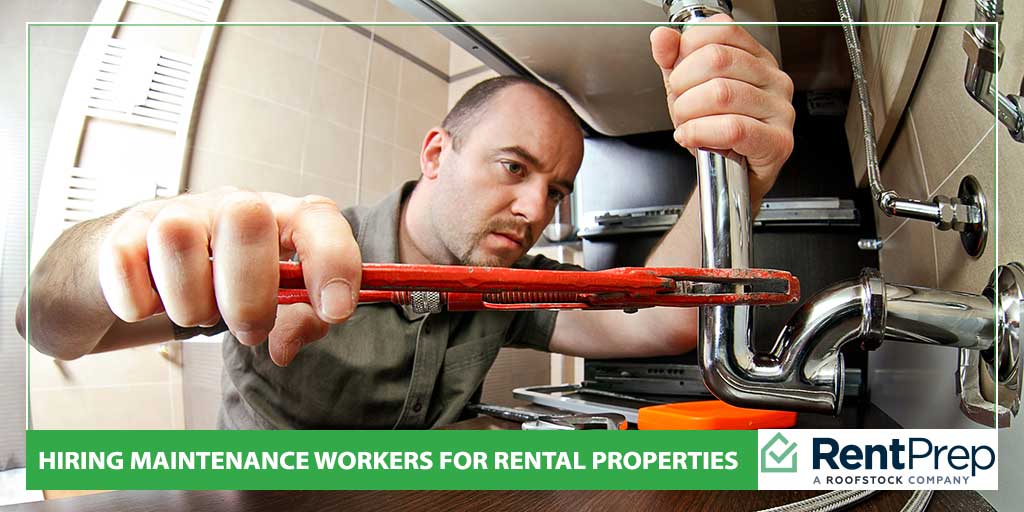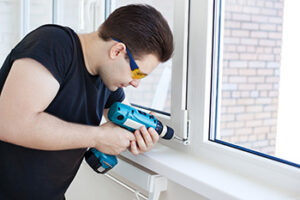
If you own or manage several rental properties, chances are that maintenance issues are one of the biggest drains on your time and money.
In order to keep your properties well-maintained and your tenants happy, it may be time to hire a full time or part time maintenance man for hire.
If you don’t have the knowledge or the aptitude for maintenance tasks, it’s an especially good idea. From a burst pipe to patching drywall and everything in between, a reliable maintenance worker can be a valuable asset to a landlord.
Typical Maintenance Issues
Maintenance workers are those who can take care of small repairs, upkeep tasks, and general maintenance. If there are major plumbing, electrical or other specialty jobs that need to be done at your rental property, it’s best to call a licensed and insured contractor of these services.
However, for day-to-day tasks that address small to medium jobs, a maintenance worker can keep you from calling those expensive contractors for low maintenance tasks.
Here is a good breakdown on typical maintenance issues:
Emergency repairs:
- No heat in cold weather
- Broken water pipe or other flooding
- Gas leak
- Fire (after calling 911)
- CO detection (after calling 911)
- Plugged toilet (when unit only has one)
- Total plumbing stoppage
- Any issue that affects the safety of the tenant or property
Non-emergency repairs:
- No hot water
- Broken blinds
- Lockouts (during work hours)
- Garbage disposals
- Clogged toilets and drains
- Replace electric fuses
- HVAC malfunctions
Upkeep and maintenance:
- Changing furnace filters
- Painting and minor repairs to walls
- Basic snow removal
- Repair or replace typical items like outlet covers
- Repair or replace kitchen appliances
- Repair or replace sinks and faucets
- Install and replace minor items like weather stripping and smoke detectors
- Changing locks at unit turnover
- Coordinate with outside contractors and vendors for specialty services
These lists are not inclusive of every issue that a maintenance person may encounter, but demonstrate a good overview of the types of tasks that someone might encounter each week.
Finding the Maintenance Worker for Hire

When hiring a maintenance worker, it’s important to get someone who has the knowledge and can be depended on to get the tasks done in a timely and professional manner.
However, finding such a person can be a real challenge, just like hiring for any position. Because your real estate investments are a business, treat the process just as you would any other job opening with applicants.
Before you put up a help wanted ad in the classifieds, it’s a good idea to write out what your expectations are for the position, research the going rate for maintenance workers in your area and outline the skills and experience you are most interested in when reviewing applicants. This information will help you create a detailed and focused ad that will hopefully attract applicants with the qualities you are seeking.
There are many options available in advertising your open position. Placing a help wanted ad in the local classifieds or listing it on community job boards often yields fine results. Other options are to let residents know about the opening and offer a small rent deduction for qualified referrals. Sometimes a tenant may have the experience you are looking for and you can exchange services for rent or a rent discount in some cases. No matter where you advertise, make sure your ad is clear and concise and displays appropriate contact information.
Interviewing Tips
After reviewing the applications you receive, narrow them down to the top five based on their skills, experience and overall application. Invite the applicants for an interview, and plan on about an hour per applicant. The interview is a critical part of getting to know the applicant, judging their skill level and seeing how well your personalities mesh together.
Because maintenance person applicants often don’t have a typical resume, with academic degrees or industry certification or training, many landlords are at a loss about how to conduct an interview so they get the information they need. It’s important to find out their true skill level and how well they can work on their own and stay motivated.
Here are 8 questions that can help you gather the right information from your maintenance person applicants:
1. How far away do they live from your rental properties?
A successful maintenance person must live close to the majority of your rental properties because response time is a critical part of the job. Many landlords make arrangements for a maintenance person to live on site or provide them with housing nearby. In the interview, ask about living arrangements and discuss together how that will positively or negatively affect the applicant’s ability to do the job.
2. Do they have multi-unit experience?
Performing maintenance for several rental properties is vastly different than being a good do-it-yourselfer around the home. A successful maintenance person will have experience handling a multitude of complex and frequent problems, such as with a multi-unit establishment or a big business complex. While previous rental property experience isn’t necessarily required, you are looking for more than a handy person with home improvement experience.
3. What is their skill level?
 Go through a typical week’s worth of maintenance issues that you face with your rental properties and see how the applicant’s skill level matches up with your needs. For example, if your primary problems are plumbing-related, make sure the applicant has experience with a range of low to medium plumbing issues. Look for someone who has basic experience in a range of areas rather than someone highly skilled in one area. In the interview, talk with the applicant about different areas like plumbing, painting, electronics and so forth. More importantly, ask them at what level of problem would they feel like they need to call in a contractor. This will give you a good idea of their skill level in each area.
Go through a typical week’s worth of maintenance issues that you face with your rental properties and see how the applicant’s skill level matches up with your needs. For example, if your primary problems are plumbing-related, make sure the applicant has experience with a range of low to medium plumbing issues. Look for someone who has basic experience in a range of areas rather than someone highly skilled in one area. In the interview, talk with the applicant about different areas like plumbing, painting, electronics and so forth. More importantly, ask them at what level of problem would they feel like they need to call in a contractor. This will give you a good idea of their skill level in each area.
4. Can they work within your system?
If you haven’t done so already, set up a system with tenants to report maintenance issues and track how and when they are resolved. There are many different methods on how to do this, but generally tenants request maintenance through you or your property manager and a work order is generated. Most work orders are ranked depending on the urgency, from “right now” to “within the week.” The maintenance person must prioritize the work orders for the day and the week and report on what happened, how the problem was resolved and note materials used, etc. No matter what your system is, make sure you discuss it in the interview so you both can determine whether it is workable. It’s also a good time to discuss your on-call procedure for emergencies, like a burst pipe.
5. Can they work on their own?
Being a property maintenance worker means lots of hours working alone, with little accountability on how each day is spent. A successful maintenance person should be able to keep up with work orders, manage time wisely, be able to prioritize tasks and stay motivated. In the interview, look for evidence that the applicant has these attributes.
6. Do they have integrity?
A maintenance worker must be ethical, both with you and with the tenants. Because they will have access to all the units via master keys, there are plenty of opportunities for unethical behavior. Also, many maintenance people are given some kind of company credit card or are included on the company account at the hardware store and must remain honest when dealing with your money and your credit. It’s usually wise to steer clear of applicants who’ve had run-ins with the law. In the interview, ask about opportunities in the past where the applicant has had access to similar funds and how well they did.
7. Can you get qualified references?
An experienced maintenance worker should be able to provide references for you to contact. Again, an applicant with the type of experience you are looking for should have experience being employed as a maintenance person. You probably won’t get reliable references from someone’s handy cousin who is good at fixing things. Before or after the interview, make sure you request both employer references as well as character references.
8. How are their customer service skills?
This may seem like a strange thing to pursue when interviewing a maintenance person, but remember that you are running a business and your tenants are your customers. A good maintenance person should be able to build a good rapport with people, explain what is happening with maintenance issues and why, and be able to deal with angry or frightened tenants in emergencies. When your maintenance person possesses good customer service skills, it will only benefit your business.
It goes without saying that a key factor in making the selection is assessing the personality of the applicant and how well you communicate with each other. When checking with the applicant’s references, make sure to ask questions about their assessment of the maintenance person’s personality.
Trial Period
Once you have decided on which applicant to hire for the position, make sure you build in a trial period so that you have the chance to assess how the maintenance person meets your needs. Expect a learning curve for both of you as you learn to work within your maintenance system with each other and see how well the new person adapts. At the end of the trial period, get together and evaluate the trial period together and figure out how to make improvements. Take the time to listen to the maintenance person and their suggestions on how things could be done better.
It takes time and care to make sure that you find the most qualified person for your maintenance position, but it will be worth it. A qualified maintenance worker that has experience and good customer service skills will be well worth it in ensuring your rental properties are well-cared for and your tenants are satisfied with their homes.
FAQs for Rental Housing Maintenance Services
What are rental housing maintenance services?
In some markets, there are companies that focused purely on rental housing maintenance services. Communication is a big part of the reason why. A contractor would rather have one client with 10 properties as opposed to 10 clients with one property. Being able to focus on the relationship and communication with fewer clients for the maintenance worker creates a better system for getting orders in and jobs completed.

